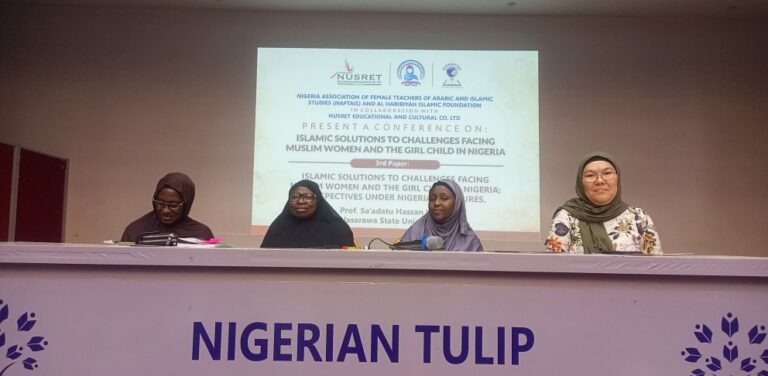
NGOs proffer solutions to challenges facing contemporary Muslim women

- Empowering education and economic opportunities: Many NGOs emphasized the importance of providing Muslim women with access to quality education and economic opportunities. This can help them become financially independent, make informed decisions, and participate fully in their communities.
- Addressing cultural and social barriers: Some NGOs highlighted the need to challenge and change cultural and social norms that restrict Muslim women's rights and freedoms. This can involve working with community leaders, religious scholars, and families to promote a more inclusive and equitable understanding of Islam.
- Promoting healthcare and well-being: The NGOs also discussed the importance of providing Muslim women with access to healthcare services, including reproductive health, mental health, and nutrition. This can help address the unique health challenges faced by Muslim women and promote their overall well-being.
- Fostering community engagement and participation: Many NGOs emphasized the need to engage Muslim women in community decision-making processes and promote their participation in public life. This can involve providing training and capacity-building programs, as well as creating safe spaces for Muslim women to express their opinions and concerns.
- Addressing violence and discrimination: The NGOs also addressed the issue of violence and discrimination against Muslim women, including domestic violence, honor killings, and Islamophobia. They emphasized the need for governments, communities, and individuals to take action to prevent and respond to these forms of violence and discrimination.
Some of the key recommendations made by the NGOs include:
1. Increasing funding and resources: The NGOs called for increased funding and resources to support programs and initiatives that address the challenges faced by Muslim women.
2. Building partnerships and collaborations: The NGOs emphasized the importance of building partnerships and collaborations between different stakeholders, including governments, NGOs, community organizations, and religious institutions.
3. Promoting policy and legislative changes: The NGOs advocated for policy and legislative changes that promote the rights and freedoms of Muslim women, including changes to laws and policies related to education, employment, healthcare, and violence against women.
4. Supporting grassroots initiatives: The NGOs highlighted the importance of supporting grassroots initiatives and community-based programs that address the unique needs and challenges of Muslim women.
Overall, the NGOs provided a range of solutions and recommendations to address the challenges faced by contemporary Muslim women. By working together and supporting these efforts, it is possible to create a more just and equitable society for Muslim women and promote their full participation and empowerment.
https://nannews.ng/2024/12/17/ngos-proffer-solutions-to-challenges-facing-contemporary-muslim-women/